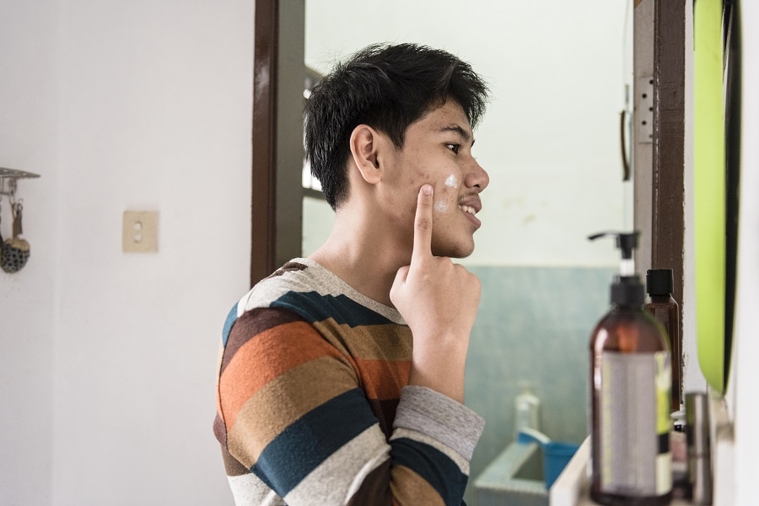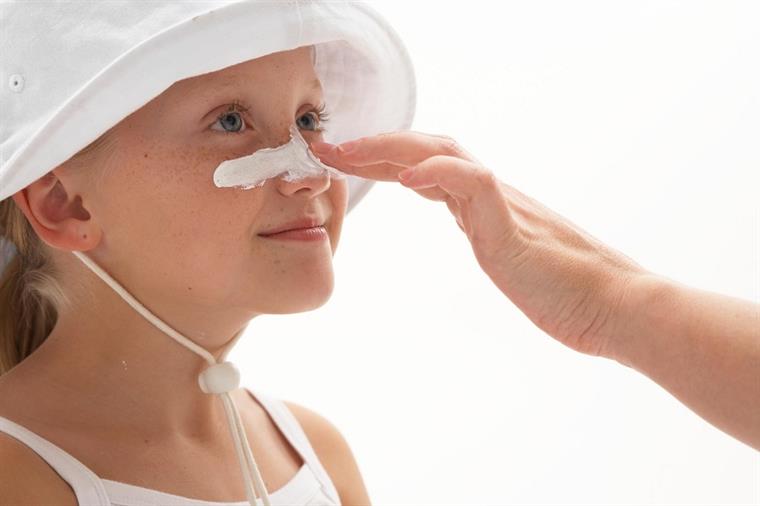A healthy skincare routine for teenagers
Aug 1, 2021

Acne, oiliness and other skin concerns are among many teenagers’ top complaints. With so many skincare products on the market, it can be tricky to know what your skin needs. Often, using trial and error on your skin just ends in more acne and trouble areas. Here’s what you need to know about skincare basics and when to see a dermatologist.
Determining your skin type
Rather than choosing skincare products at random, you can start by determining your skin type. There are four main skin types, although you may straddle the line between skin types or find that your skin type changes throughout your life and depending on your environment.
- Normal skinoften appears to be the skin type with the least number of imperfections or challenges. People with normal skin typically have an even skin tone and few blemishes. Skin is neither flaky nor oily.
- Dry skinmay look rough, scaly or dull. People with dry skin often have flaking or itchiness. You may also find that your skin is drier during winter months, when humidity is lower in many parts of the United States.
- Oily skinis common in teenagers. Skin may appear shiny and pores are usually visible. People with oily skin typically struggle more with pimples, blackheads and other breakouts.
- Combination skinusually means that you have characteristics of one skin type in one spot and characteristics of another type in another spot. For example, you may have oiliness on your forehead, nose and chin, but have dry skin on your cheeks.
Back to the basics: building a skincare routine
No matter your skin type, there are three essential steps in every healthy routine.
- Cleanse.Just like you wash your body daily, you should wash your face to remove oil, dirt and dead skin. Teenagers who have oily skin also find that a daily cleanse helps prevent excess oil buildup. The type of cleanser can vary. There are many over-the-counter cleansers formulated for dry skin, oily skin, acne-prone skin, combination skin and more. Teens and adults who wear makeup typically need an extra step for makeup removal, especially for eye products like mascara and liner. Although some cleansers can remove makeup and clean the skin, it’s usually more effective to use a product specifically formulated for makeup removal before cleansing.
- Moisturize.Most skin types benefit from moisturizing in both the morning and evening. But this step could vary. People who live in dry climates may need to moisturize twice a day year-round, while those who live in more humid climates may only moisturize once a day during summer months. However often you moisturize, this step always comes after cleansing and before protecting.
- Protect.Start building good habits early by wearing sunscreen with an SPF of at least 30 or more every day. Daily sunscreen use is one of the most important tools in preventing skin cancer. The sun’s ultraviolet (UV) rays can go through windows, reflect off water and shine through clouds, so it’s important to use sunscreen even on days when the sky looks overcast or you’ll be mostly indoors.
These three steps are the basics of a skincare routine. You can also keep your skin as healthy as possible by taking care to:
- Avoid tanning beds.
- Clean your hands frequently and avoid touching your face.
- Refrain from sharing makeup, including lip balms.
- Skip lemon juice for freckles, toothpaste for acne and other old wives’ tales.
When do I need more?
Teenagers who have specific skin concerns such as acne, psoriasis or rosacea, may need extra steps in their skincare routine. For example, there are many over-the-counter spot treatments for acne. Common options include products with benzoyl peroxide or salicylic acid.
While some teens are lucky to find success right away with over-the-counter options, others may need extra help. When in doubt, a dermatologist can provide a full assessment and treatment recommendations for skin concerns.
Many people don’t think their skin concerns are “severe enough” to warrant a trip to the dermatologist. But any time a skin concern affects your confidence, self-esteem, pain levels or day-to-day life, it’s time to seek professional care. Many teenagers feel self-conscious about skin conditions like acne, and getting professional treatment can help them feel more confident.
To find a dermatologist or another care provider,find an Adventist Health providernear you.


